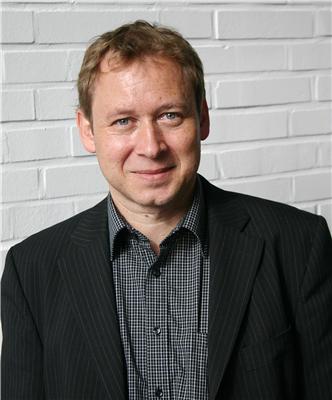Dec 11 2012
The Max-Planck-Institut für Eisenforschung (Max Planck Institute for Iron Research; in the following: MPIE) has established a new department headed by Prof Gerhard Dehm.
 Prof. Gerhard Dehm - MPIE
Prof. Gerhard Dehm - MPIE
The department “Structure and Nano-/Micromechanics of Materials” aims at understanding the local mechanical properties of materials by employing mechanical testing and microstructural characterization methods with high spatial resolution. With this understanding, nanostructured materials and high temperature intermetallic materials with superior mechanical properties will be developed.
The development of new materials with superior properties goes hand in glove with the analysis of atomic defect structures and their reciprocity. This enables Dehm to draw conclusions between the structure and the mechanical properties of the analysed materials. That is especially interesting at the micro and nano scale as materials can behave totally different compared to their bulk counterparts. The analysed dimensions are that small that defects in the materials correspond directly with the size of the sample. This phenomenon results in exceptional material properties that are not found analysing larger scales. Dehm and his team aim at transferring the results gained on the nano scale to the bulk materials. This is helpful in combining opposed properties like extreme hardness and high ductility for technical materials.
The MPIE will undergo huge reconstruction processes to enable this kind of research. New high-resolution transmission electron microscopes will help to carry out the experiments on the nano scale. A cornerstone will be the combination of advanced characterisation and mechanical testing in form of in situ nano-/micromechanical experiments which permit to simultaneously observe the microstructural changes while measuring the mechanical response.
Dehm’s research is especially interesting for applications in the nano and microelectronics of automobiles, in power engineering and for flexible electronics. Additionally, the life span of high temperature materials and complex steels depends on the local properties. Thus, these materials are in the research focus, too. Moreover, the research methods used by Dehm permit to optimise the assembly of ceramics and polymers with metals. This is important for corrosion protection and the processing of surfaces.
Dehm did his doctorate 1995 in material sciences at the Max-Planck-Institute for Metals Research in Stuttgart (Germany). Before joining the University of Leoben (Austria) in 2005 as a professor for Materials Physics, he continued his research as a group leader in Stuttgart and had a research stay at the Technion in Haifa (Israel). In Leoben, Dehm was head of the Department of Materials Physics and director of the Erich Schmid Institute of Material Science of the Austrian Academy of Sciences.